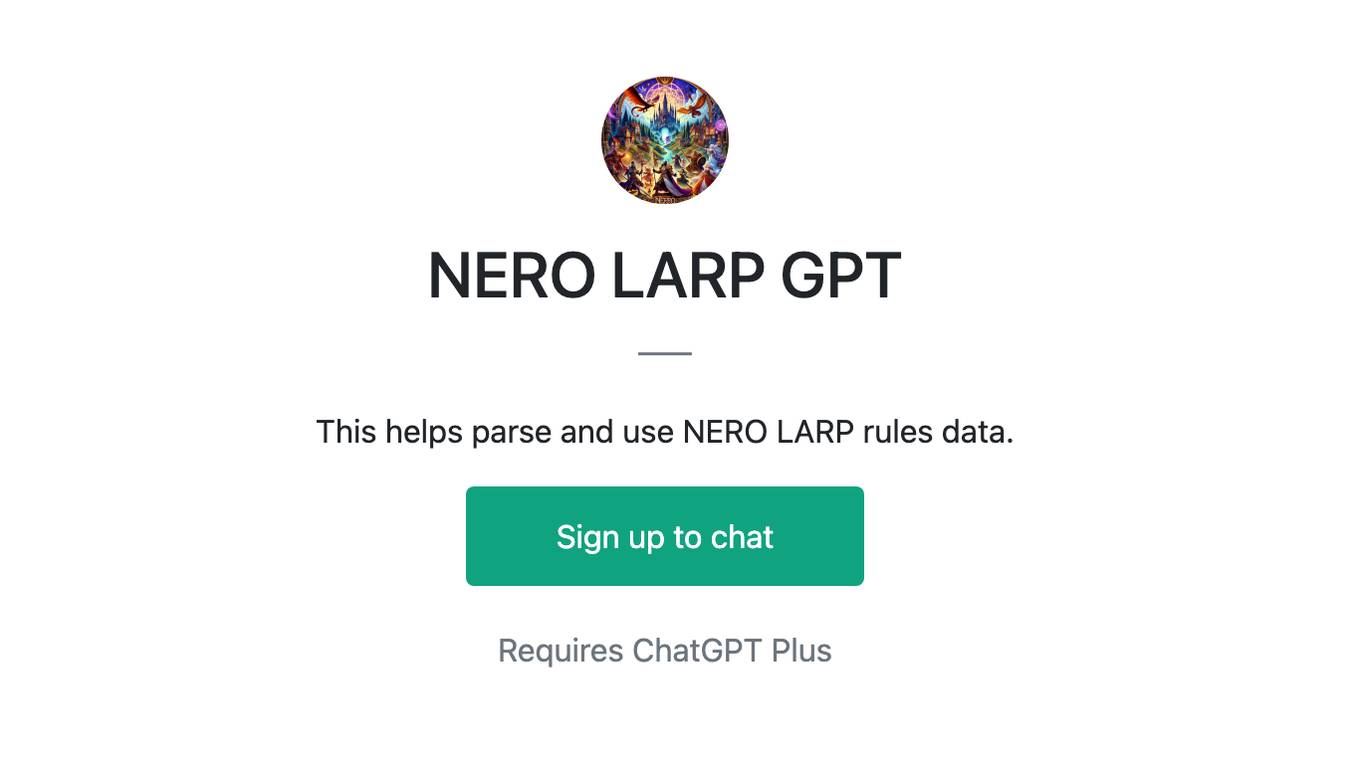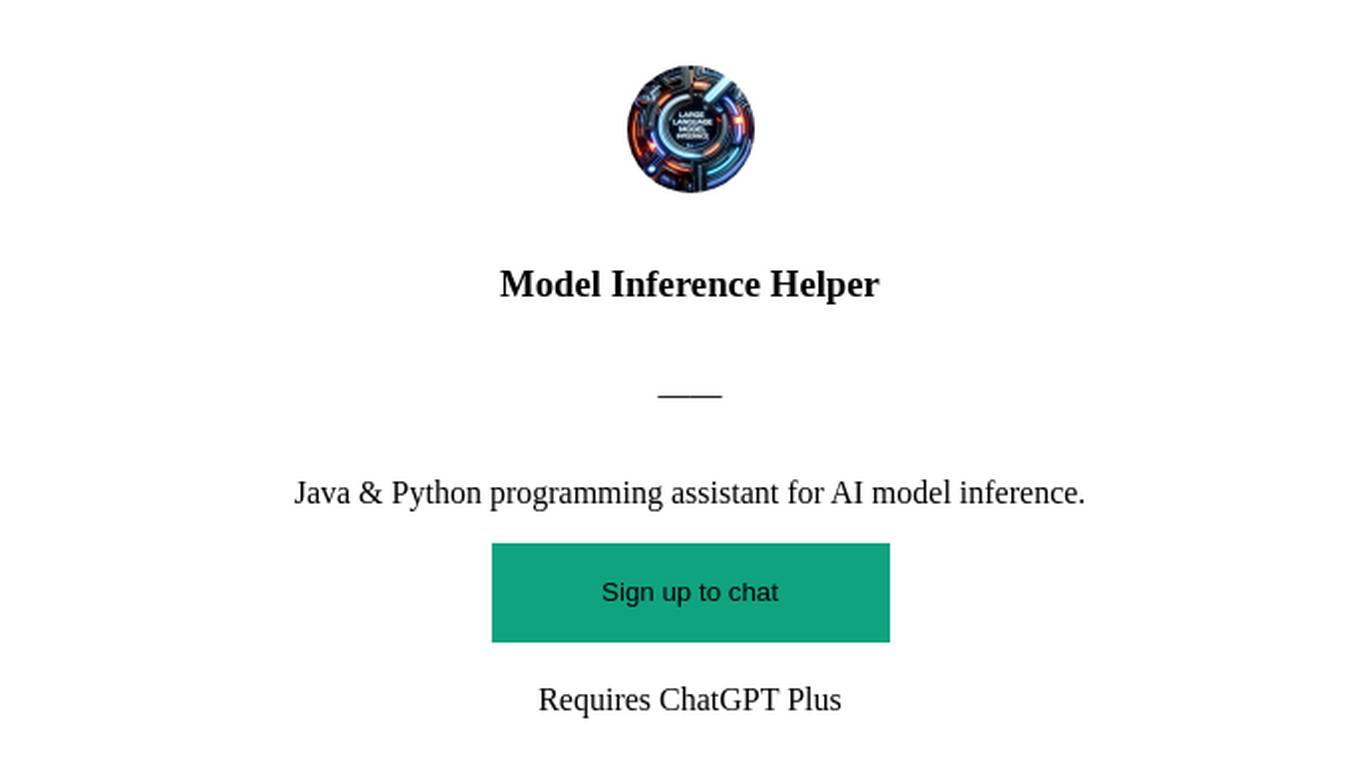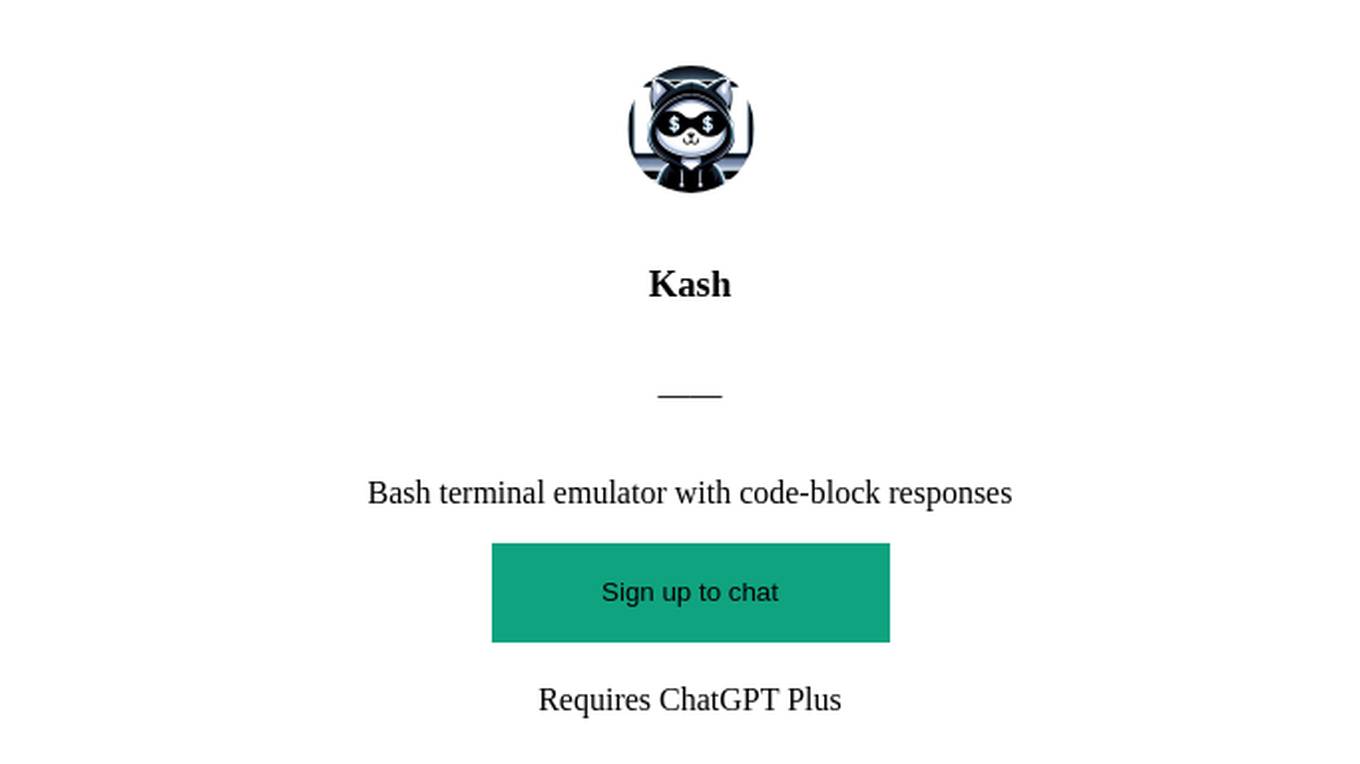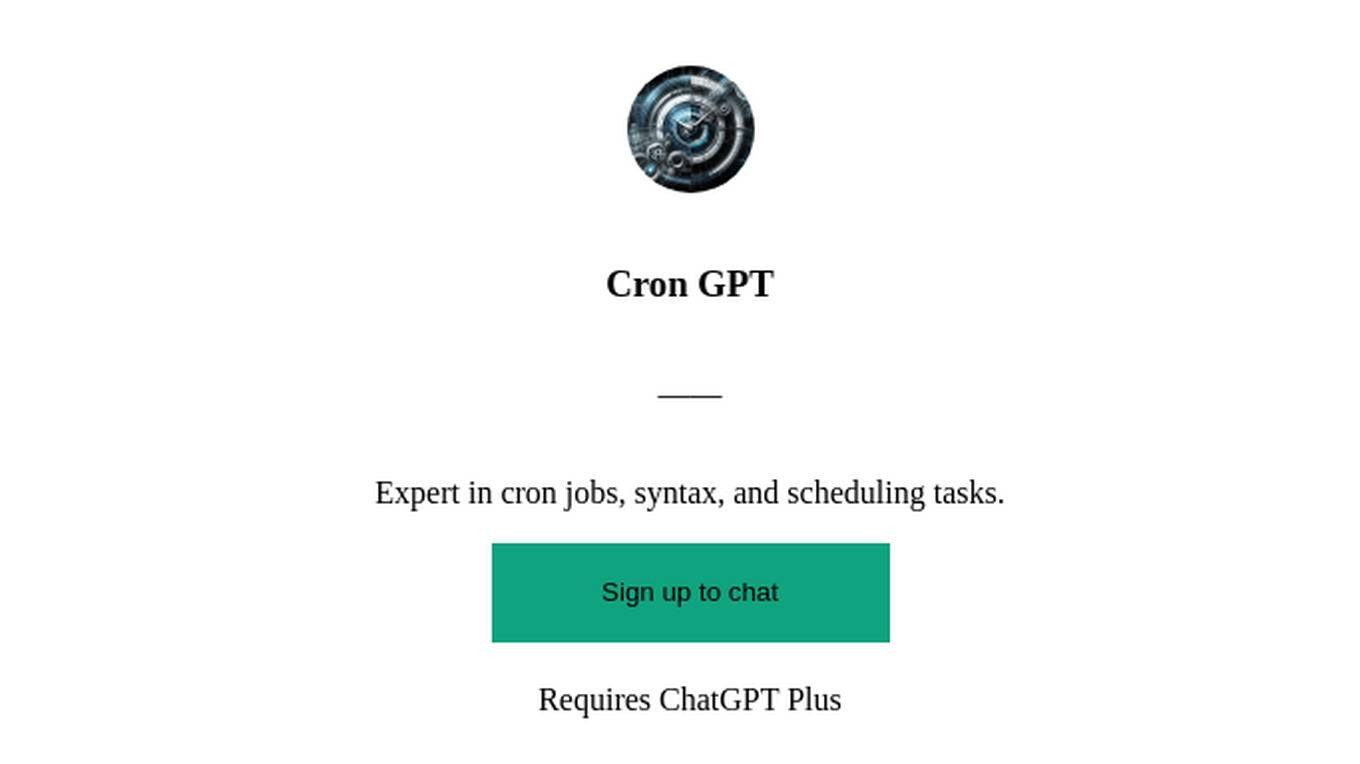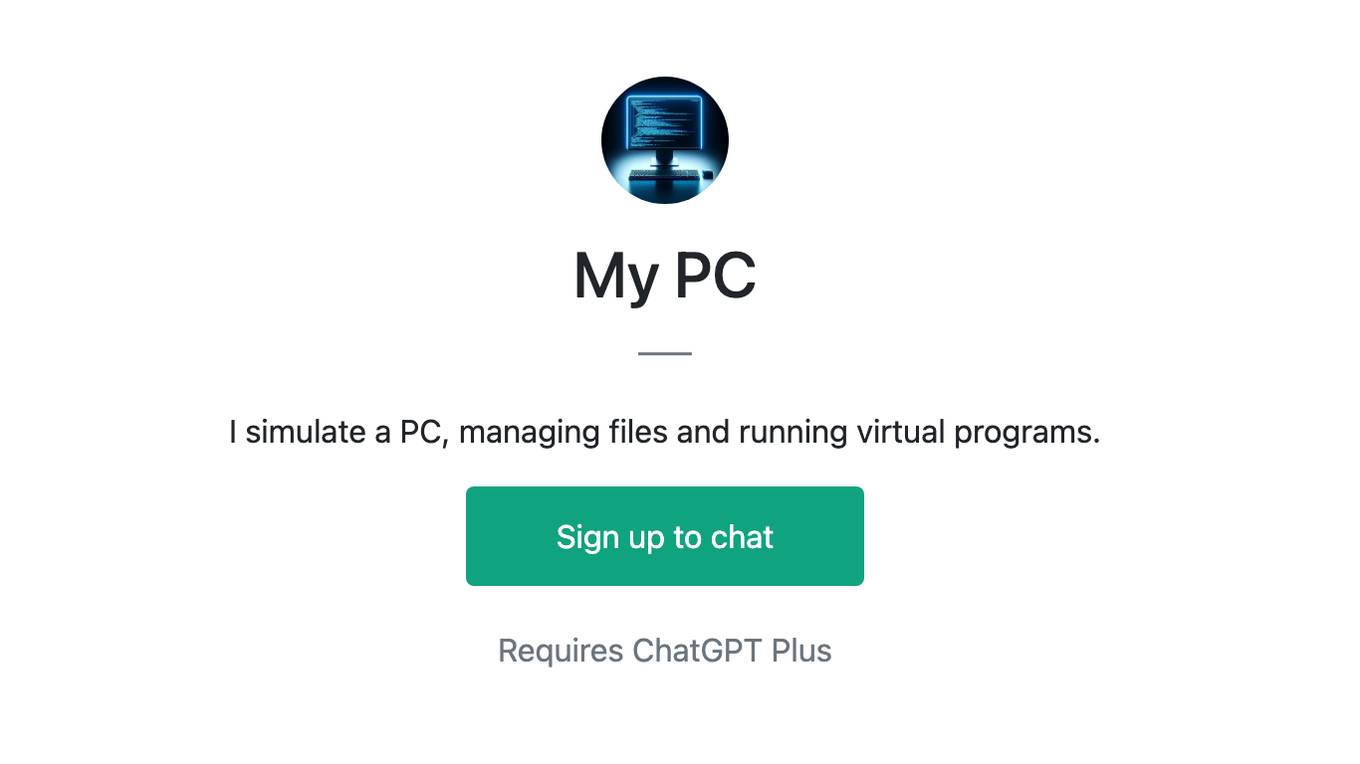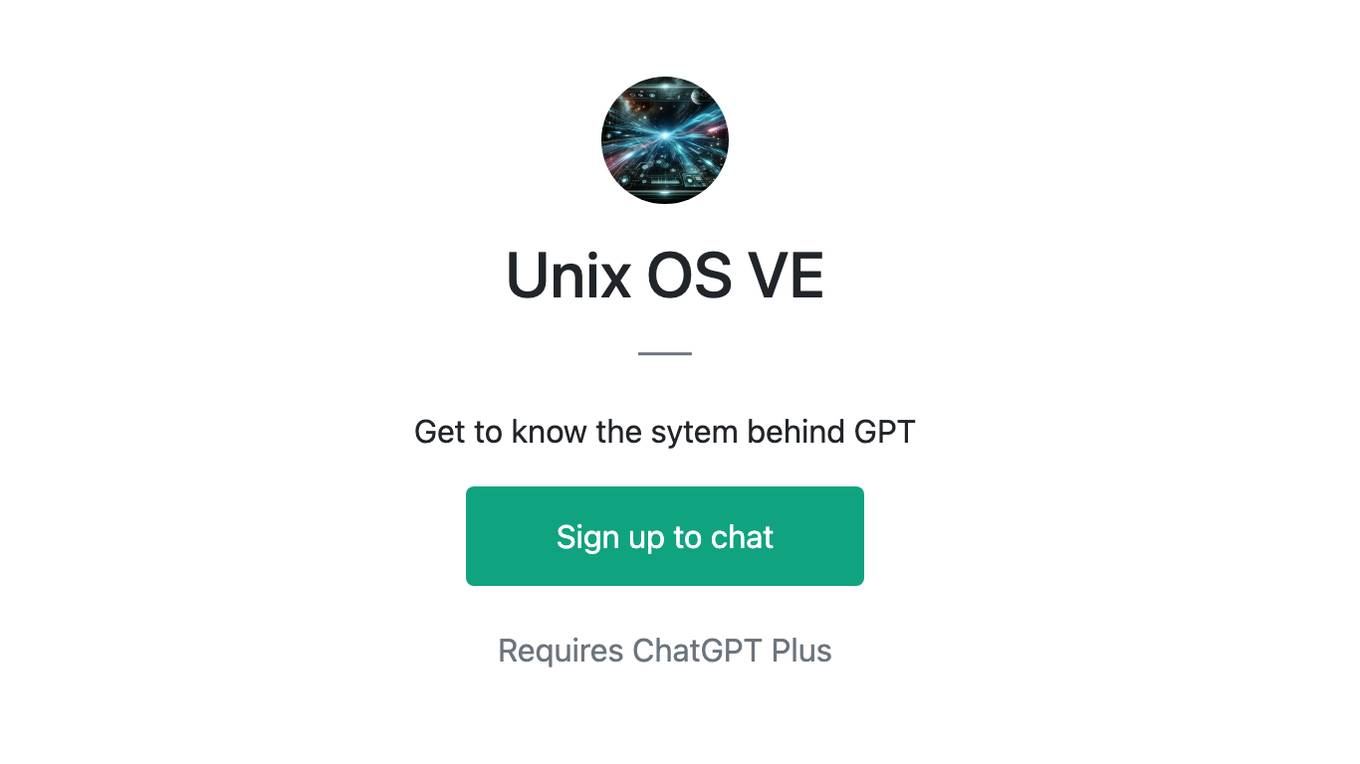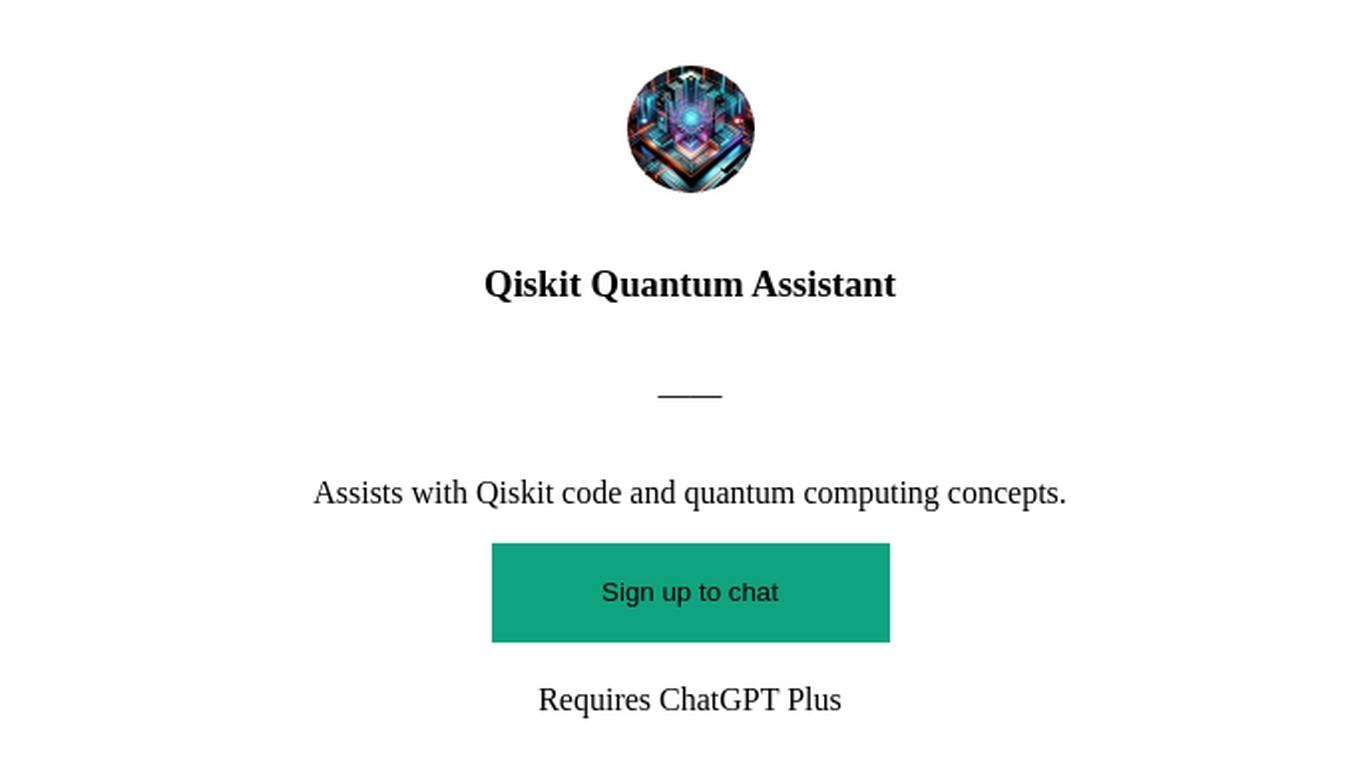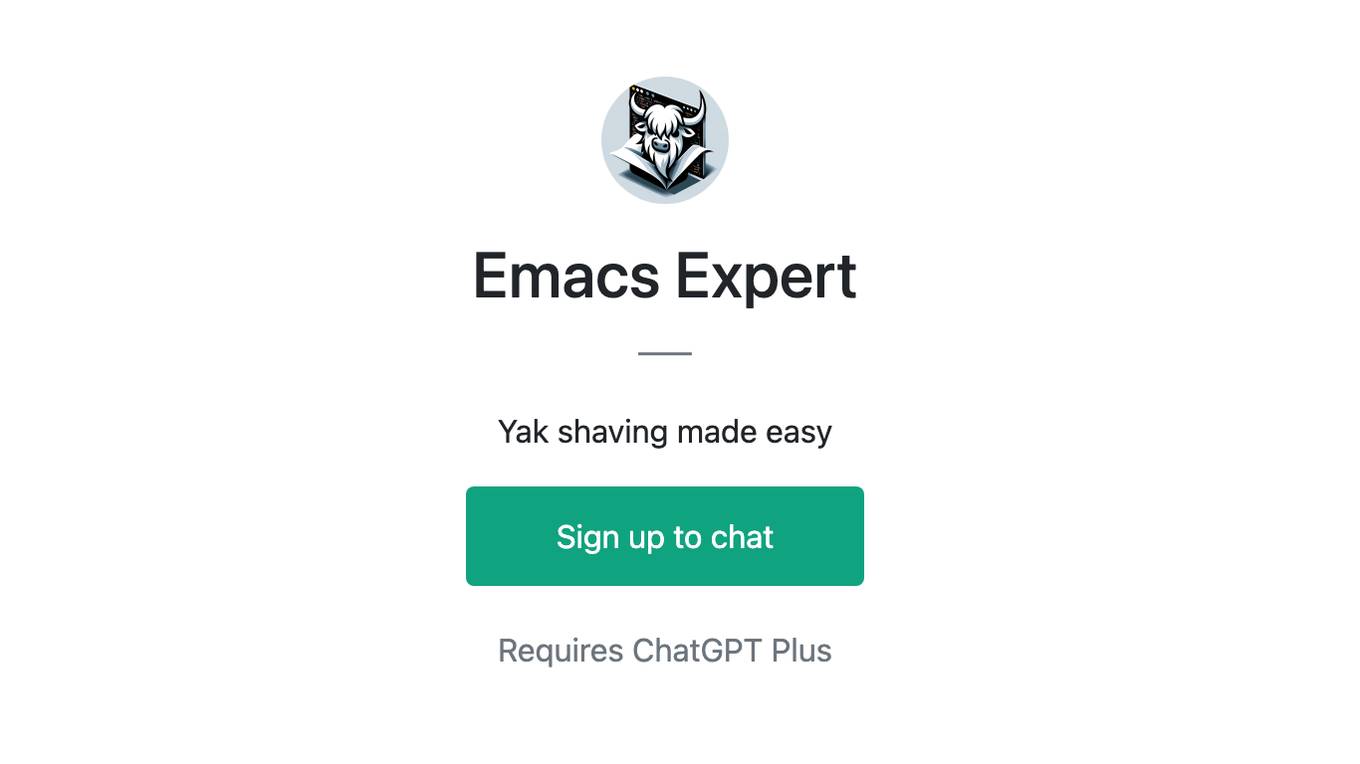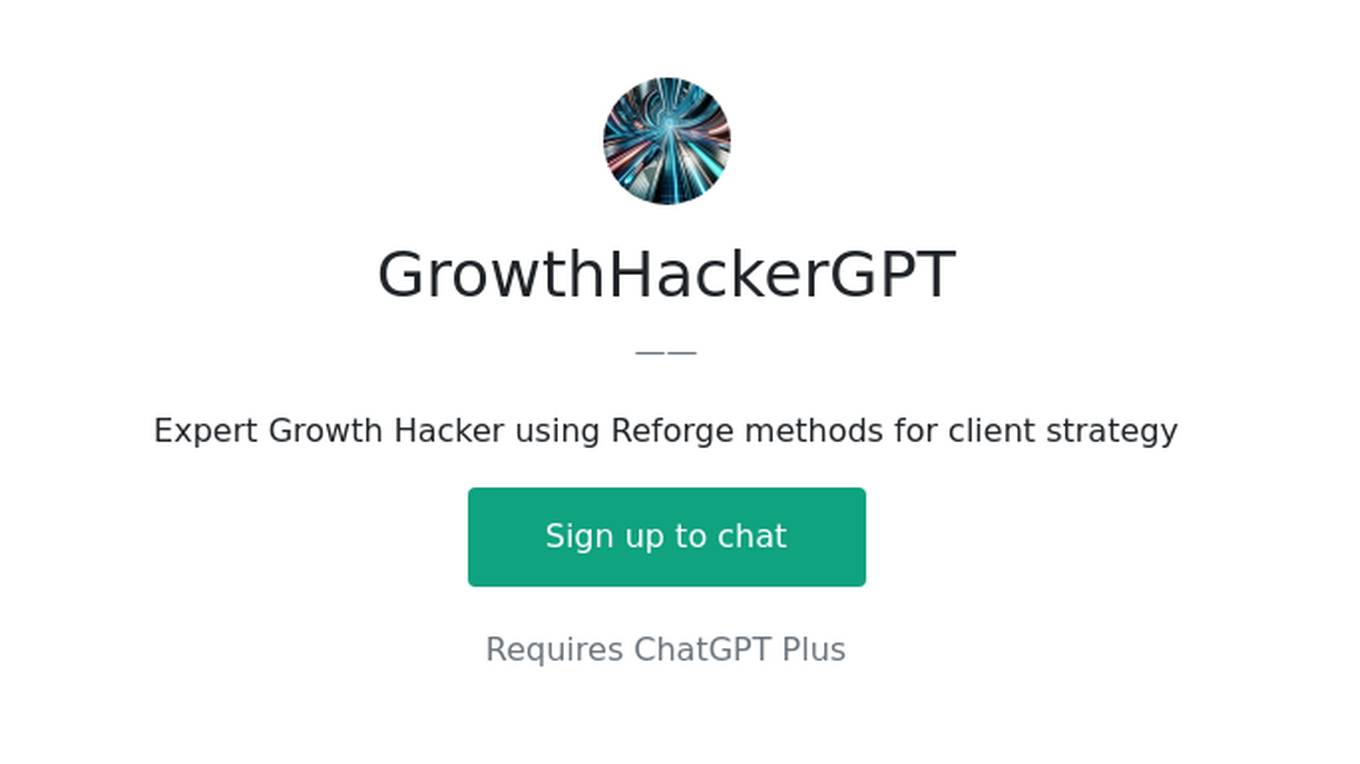Best AI tools for< Run Data Analysis >
20 - AI tool Sites
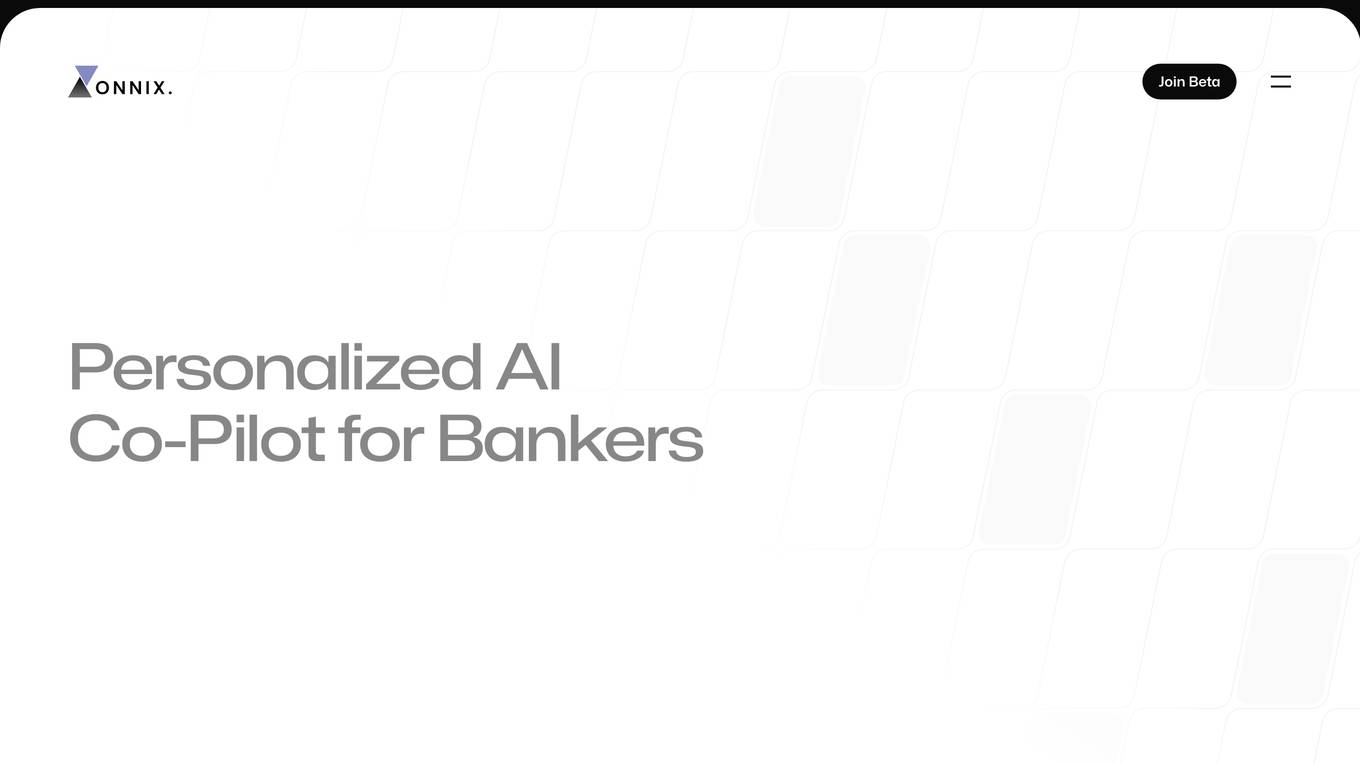
Onnix AI
Onnix AI is a personalized AI co-pilot designed specifically for bankers, aiming to save teams time by providing accurate answers and deliverables quickly. It brings AI and powerful data science tools to the banking sector, offering features such as creating personalized slide decks, conducting Excel analysis, and querying data sources. Onnix AI caters to both senior and junior teams, enabling them to generate deeper insights and streamline their workflow efficiently.

Genius Sheets
Genius Sheets is a self-service data reporting tool that allows users to connect to data in Excel and Google Sheets and generate reports without the need for SQL or Python. It is designed to be easy to use and provides enterprise-grade security. Genius Sheets is trusted by over 100 companies and has been featured in publications such as Forbes and TechCrunch.

Viable
Viable is an AI-driven platform that provides actionable insights from qualitative data. It effortlessly transforms raw data into valuable information using AI technology. The platform offers integrations with various tech stacks and transparent pricing options to meet user requirements. Viable is designed to help businesses improve customer experience, boost employee engagement, enhance marketing strategies, prioritize product management actions, and conduct efficient research with the help of AI.
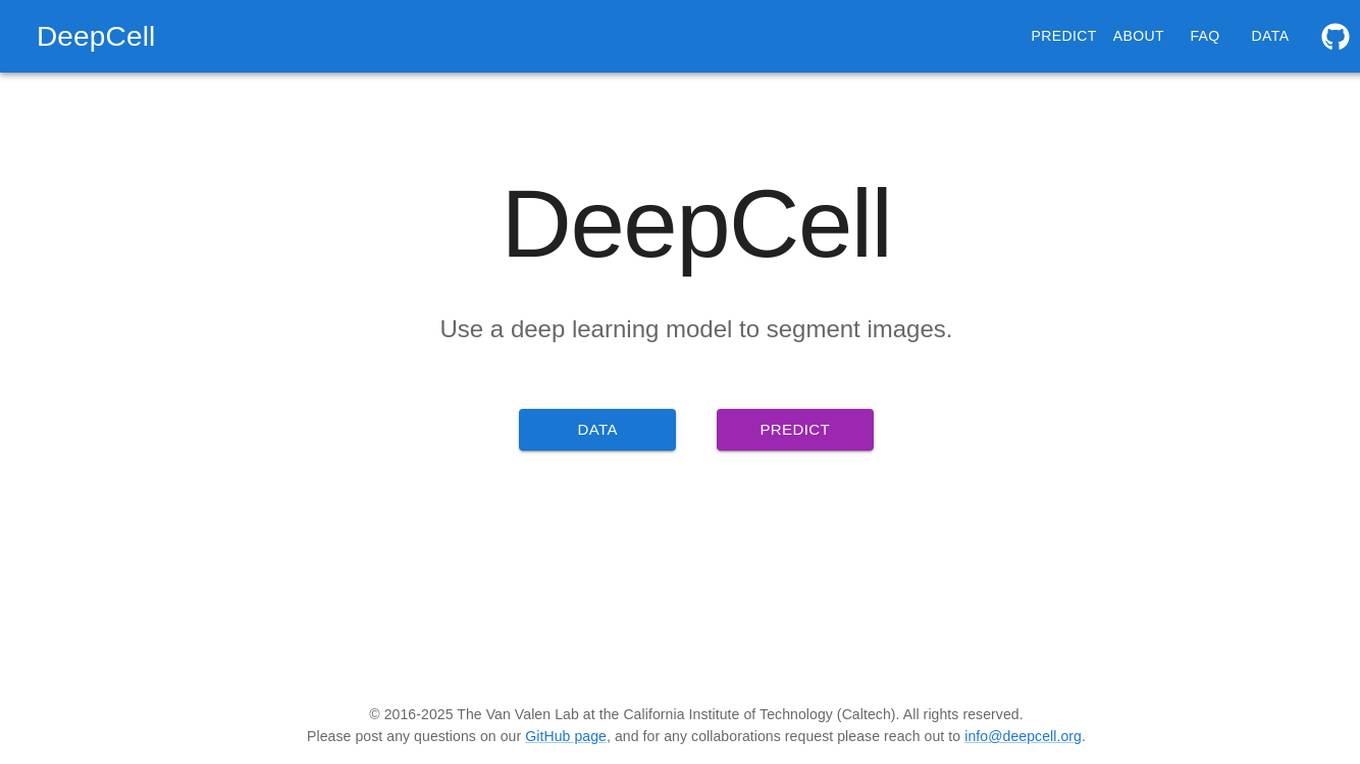
DeepCell
DeepCell is an AI-powered application that requires JavaScript to be enabled to run. It utilizes advanced algorithms to perform various tasks efficiently and accurately. DeepCell is designed to assist users in analyzing and processing data in a streamlined manner, making it a valuable tool for data-driven decision-making and research.
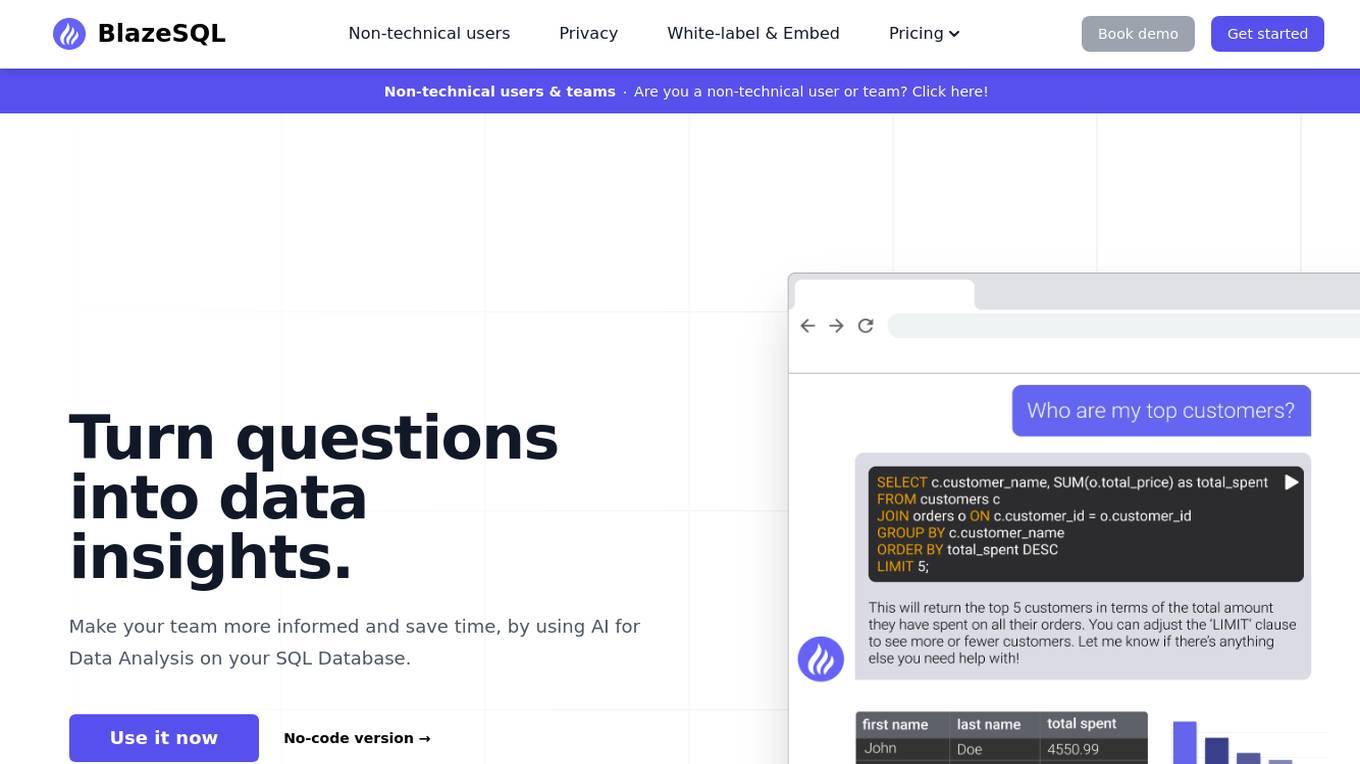
Blaze SQL AI
Blaze SQL AI is an AI Data Analytics chatbot and SQL generator that helps non-technical users and teams turn questions into data insights. It allows users to make their teams more informed and save time by using AI for Data Analysis on their SQL Database. Blaze SQL AI can write SQL code, run queries, visualize data, and provide database documentation. It is trusted by innovative teams and offers a private desktop version for secure data connections. The tool is designed to help users easily interact with their databases using natural language and generate complex SQL queries with the help of AI technology.
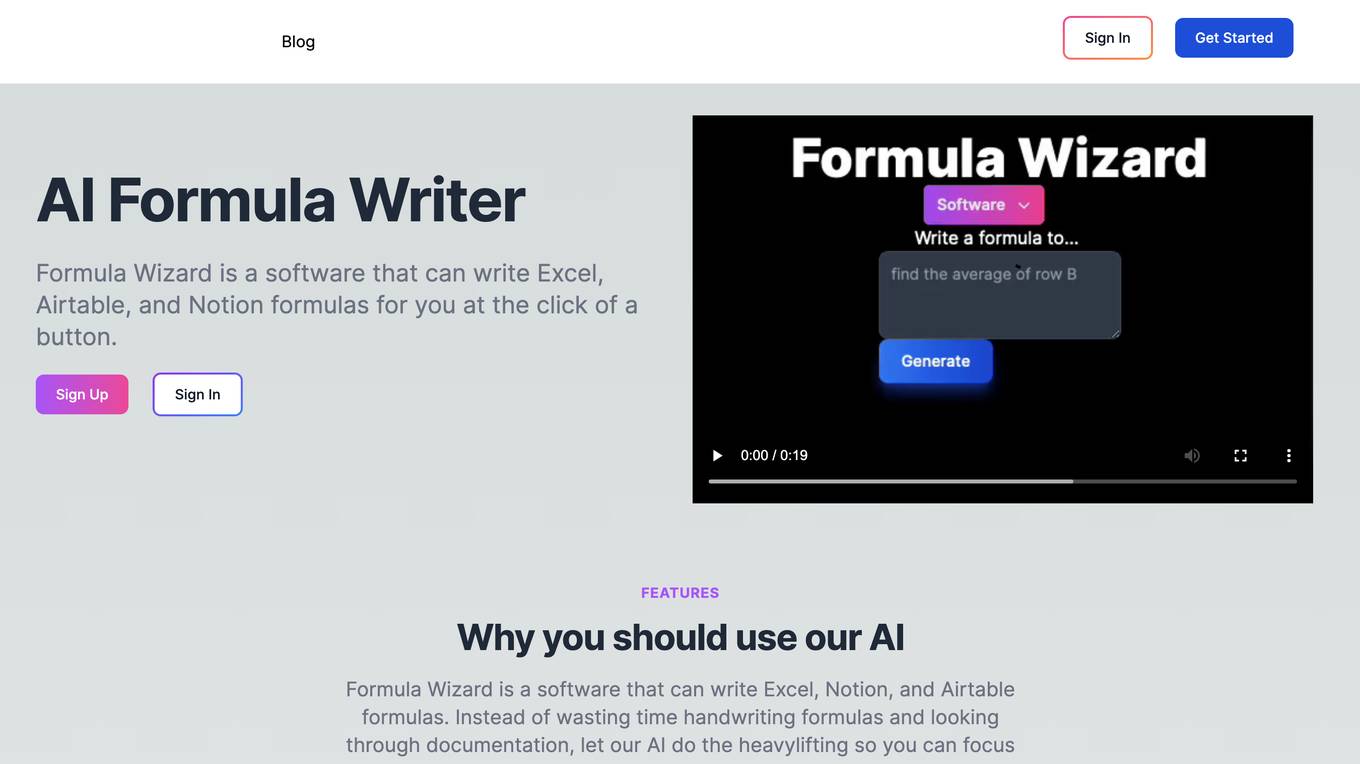
Formula Wizard
Formula Wizard is an AI-powered software designed to assist users in writing Excel, Airtable, and Notion formulas effortlessly. By leveraging artificial intelligence, the application automates the process of formula creation, allowing users to save time and focus on more critical tasks. With features like automating tedious tasks, unlocking insights from data, and customizing templates, Formula Wizard streamlines the formula-writing process for various spreadsheet applications.

The Neuron
The Neuron is an AI tool that provides AI tools, tutorials, and resources to help professionals and businesses leverage artificial intelligence to be more impactful at work and run their businesses efficiently. It offers the latest AI news, tools, and how-to guides, aiming to empower users with valuable insights and practical knowledge in the field of AI.
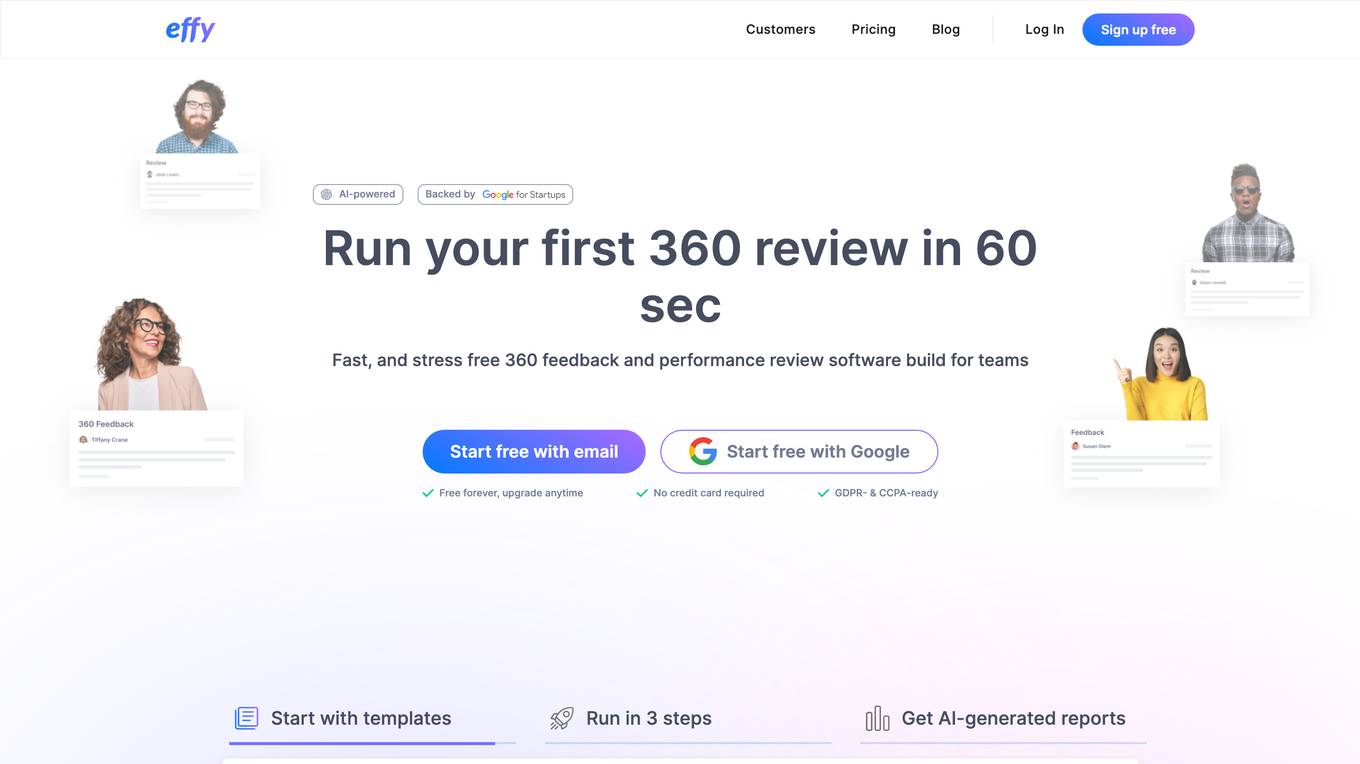
Effy AI
Effy AI is a free performance management software for teams. It is AI-powered and backed by Run your first 360 review in 60 sec. Fast, and stress-free 360 feedback and performance review software build for teams. With Effy AI, you can collect reviews from different sources such as self, peer, manager, and subordinate evaluations. The platform goes even further by allowing employees to suggest particular peers and seek approval from their manager, giving them a voice in their reviews. Effy AI uses cutting-edge artificial intelligence to carefully process reviewers' answers and generate comprehensive reports for each employee based on the review responses.

Zeus Notebook
Zeus Notebook is an AI code assistant designed by Ying Hang Seah. It allows users to run a Python notebook entirely on their browser. Users can enter their OpenAI API key to enable chat functionality. The application is a helpful tool for developers and programmers to get assistance with coding tasks and projects.
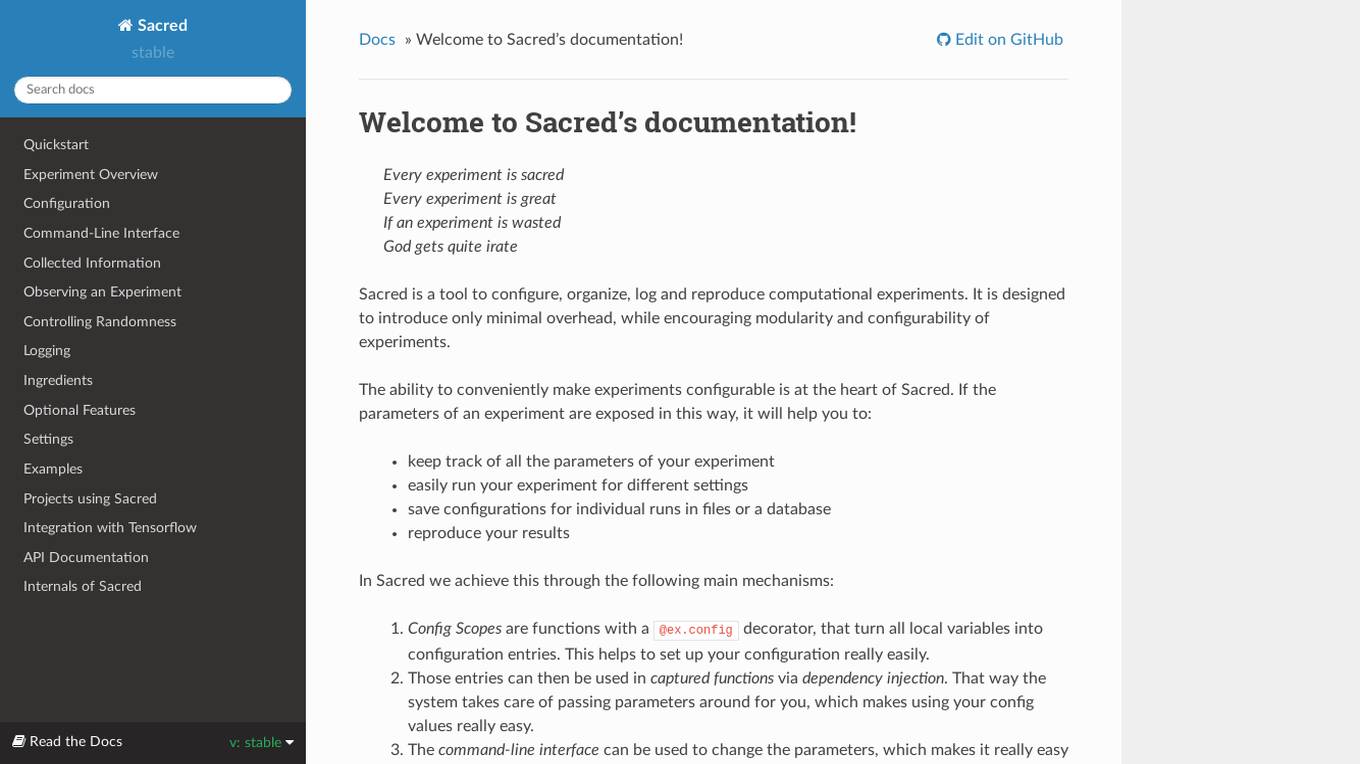
Sacred
Sacred is a tool to configure, organize, log and reproduce computational experiments. It is designed to introduce only minimal overhead, while encouraging modularity and configurability of experiments. The ability to conveniently make experiments configurable is at the heart of Sacred. If the parameters of an experiment are exposed in this way, it will help you to: keep track of all the parameters of your experiment easily run your experiment for different settings save configurations for individual runs in files or a database reproduce your results In Sacred we achieve this through the following main mechanisms: Config Scopes are functions with a @ex.config decorator, that turn all local variables into configuration entries. This helps to set up your configuration really easily. Those entries can then be used in captured functions via dependency injection. That way the system takes care of passing parameters around for you, which makes using your config values really easy. The command-line interface can be used to change the parameters, which makes it really easy to run your experiment with modified parameters. Observers log every information about your experiment and the configuration you used, and saves them for example to a Database. This helps to keep track of all your experiments. Automatic seeding helps controlling the randomness in your experiments, such that they stay reproducible.

AI Experts
AI Experts is an AI agency that helps businesses integrate AI into their operations. They offer a range of AI-driven tools for content creation, data analysis, and more. Their mission is to bridge the gap between groundbreaking AI advancements and business goals.
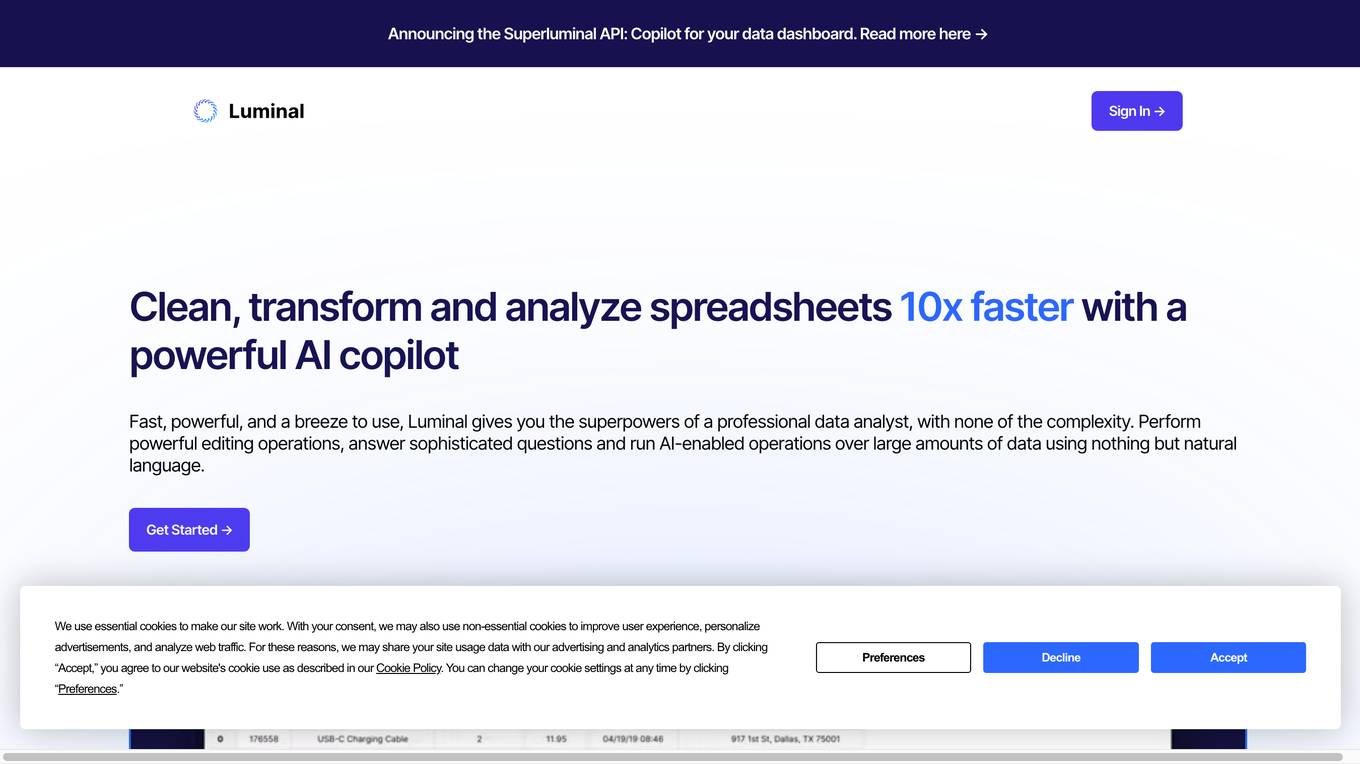
Luminal
Luminal is a powerful AI copilot that enables users to clean, transform, and analyze spreadsheets 10x faster. It offers fast and efficient data analysis capabilities, allowing users to perform editing operations, answer complex questions, and run AI-enabled operations using natural language. Luminal simplifies data processing tasks, saving users time and effort. The application supports multiple languages, ensures secure data hosting with encryption, and offers flexible pricing plans to cater to different user needs.

MimicPC
MimicPC is a web-based platform that allows users to run various AI applications directly in their browser without the need for installation. Users can access a wide range of AI tools and applications seamlessly, making it convenient for both professionals and enthusiasts to leverage the power of artificial intelligence. With MimicPC, users can perform tasks such as image recognition, natural language processing, and data analysis with ease.
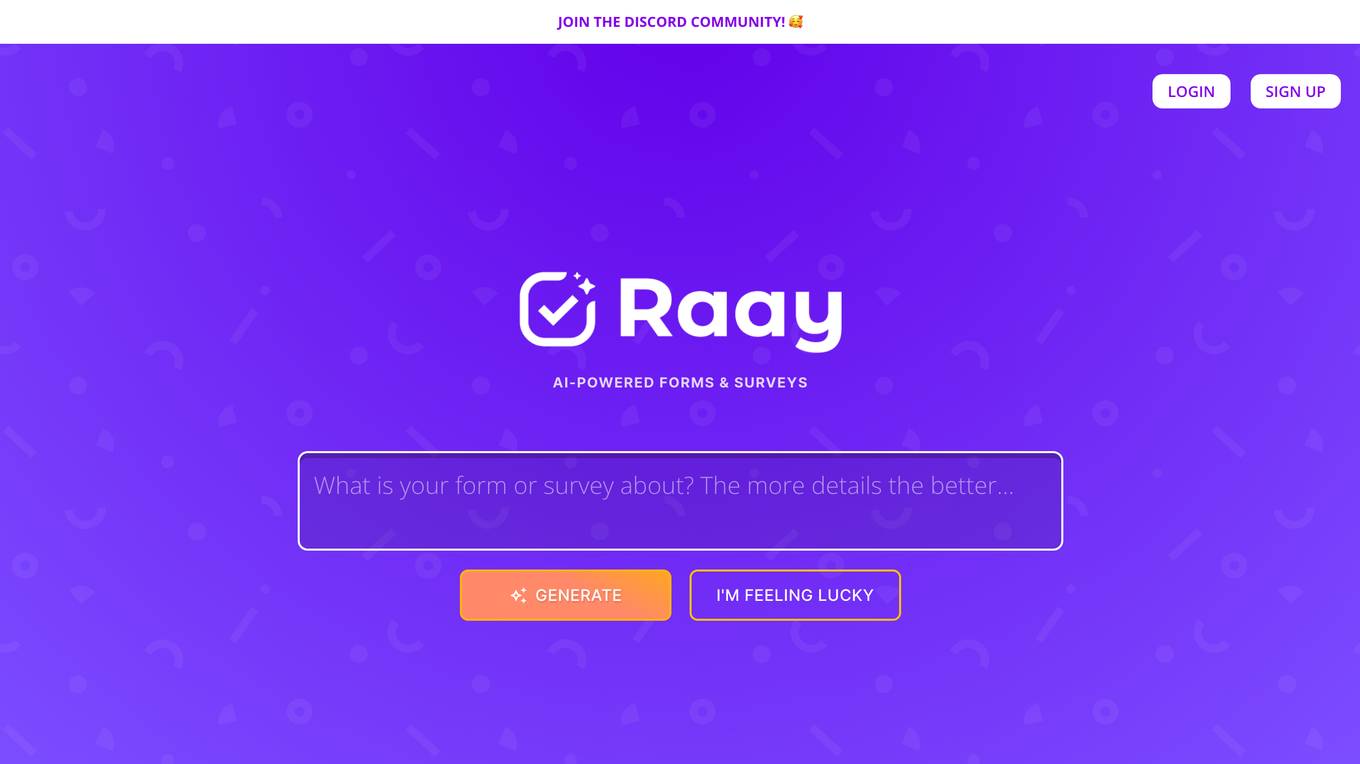
Raay
Raay is an AI-powered forms and surveys platform that helps users create, share, run, and analyze data. It offers a range of features including highly integrable forms, bias detection, and meaningful insights. Raay's affordable pricing plans make it accessible to users of all levels.
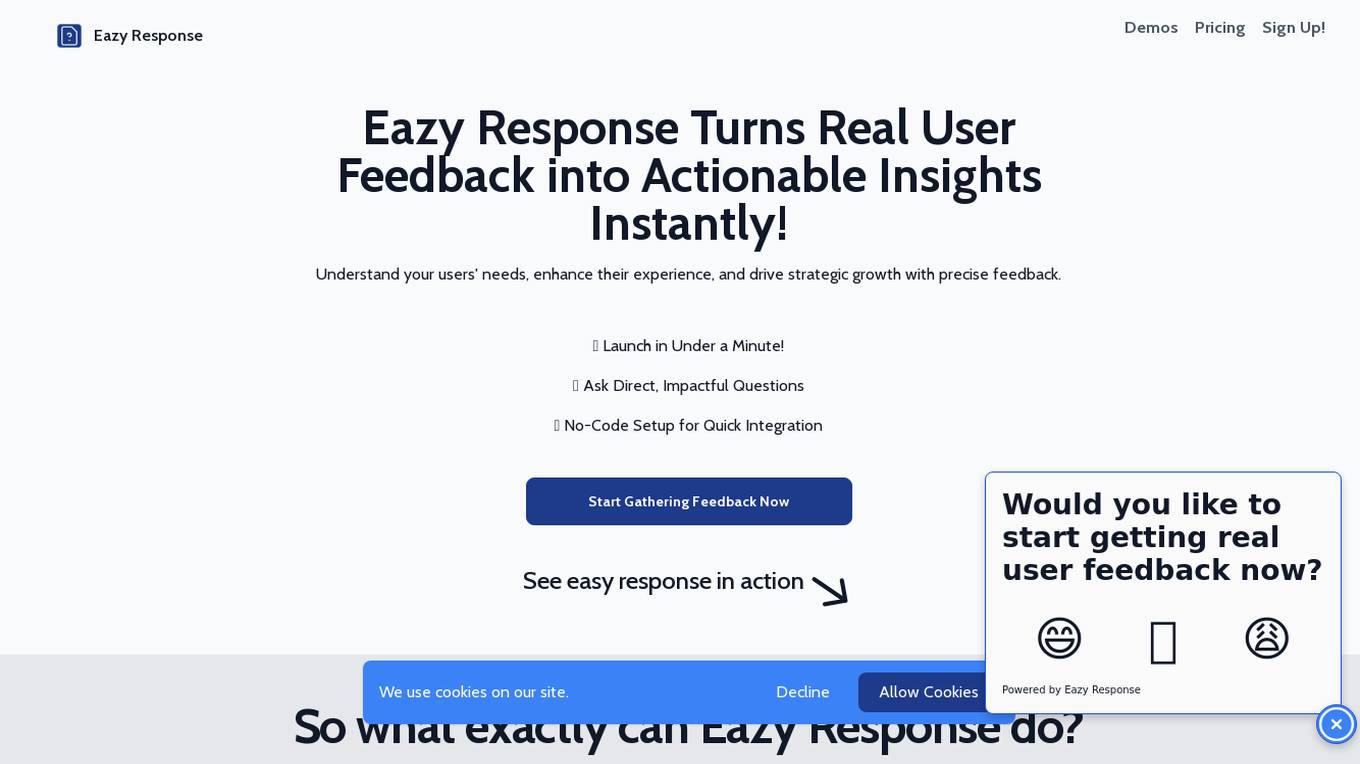
Eazy Response
Eazy Response is an AI-powered feedback tool that helps businesses gather real user feedback quickly and efficiently. It allows users to engage with their audience using emojis, customize questions, run quizzes, and gain actionable insights through AI-driven data analysis. With easy integration and simple analytics, Eazy Response enables businesses to enhance user experience, make data-driven decisions, and improve their products based on real feedback.
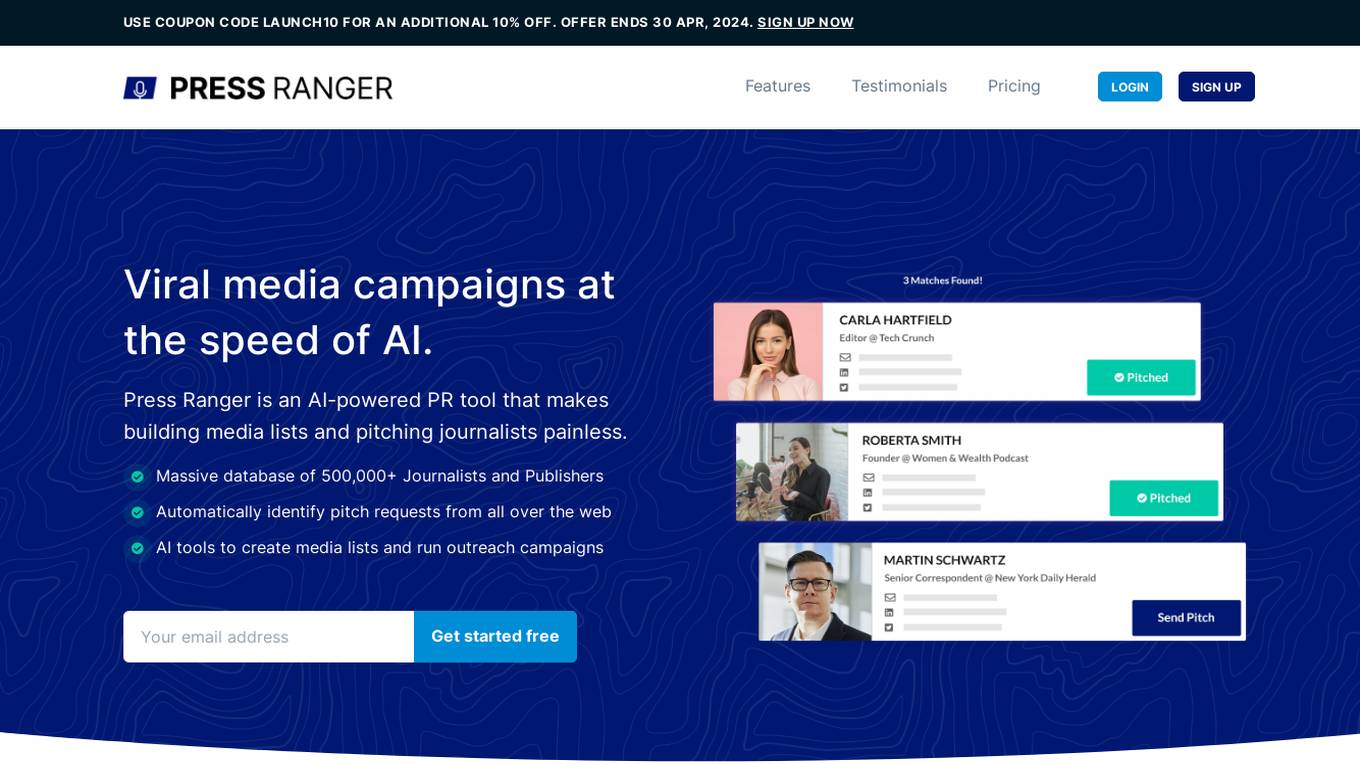
Press Ranger
Press Ranger is an AI-powered PR tool that makes building media lists and pitching journalists painless. It offers a massive database of over 500,000 journalists and publishers, and uses AI tools to create media lists and run outreach campaigns. Press Ranger also provides real-time analytics to track and optimize PR efforts.
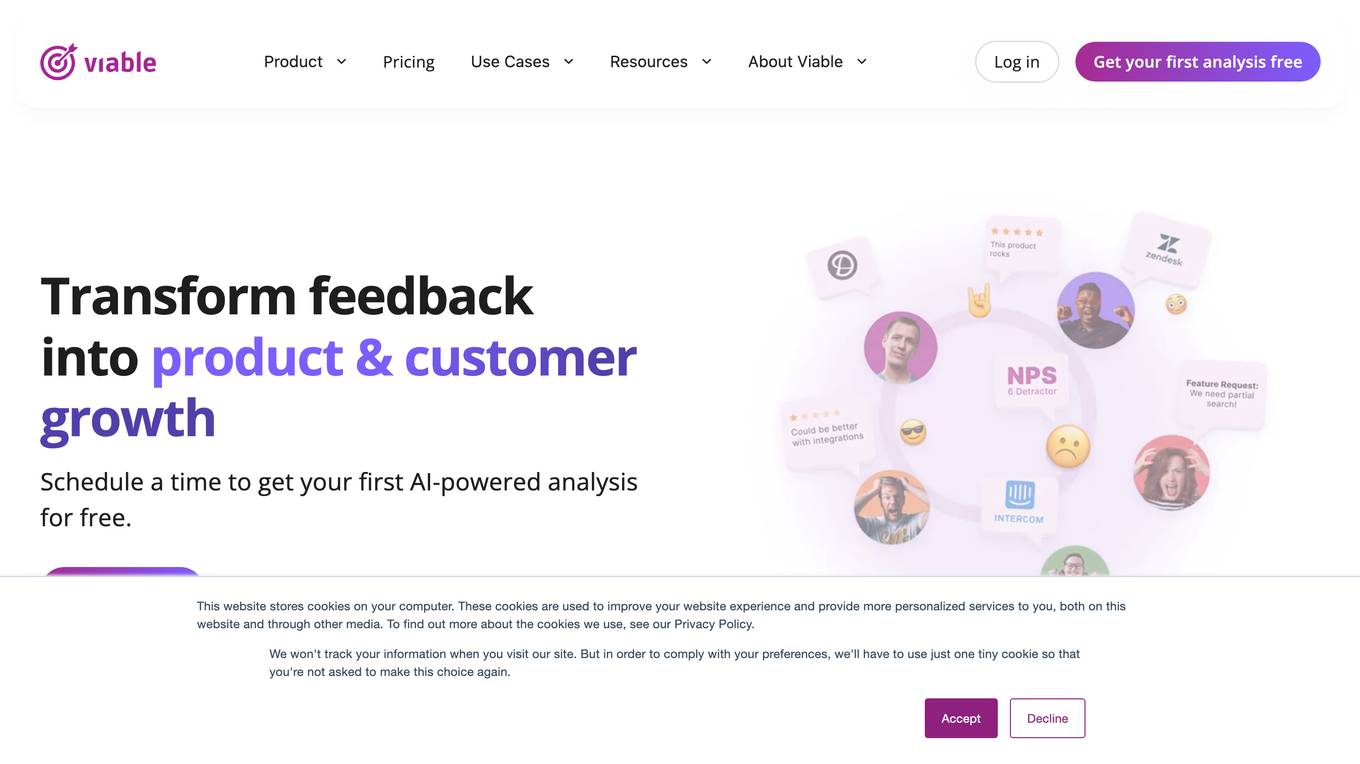
Viable
Viable is an AI-powered platform that helps businesses analyze and understand their qualitative data. It uses a combination of proprietary AI models and GPT-4 to deliver insights that are accurate, nuanced, and actionable. Viable integrates with popular tools like Zendesk and Intercom, and offers unlimited seats for your entire team.

Blobr
Blobr is an AI tool designed to help users run Google Ads like a pro. It provides access to an AI twin of a Google Ads expert, trained to understand the user's business and apply winning strategies. Trusted by over 100 industry leaders and agencies, Blobr offers deep analysis, constant testing, and ruthless prioritization of Google Ads campaigns in real-time. The AI twin replicates the methodologies of Google Ads experts, providing deep understanding, same expert processes, and better coverage for campaign monitoring. Users can easily turn their campaigns into pro-mode by sharing business goals, connecting ad data, letting the AI twin analyze performance, receiving weekly insights, and applying optimizations with ready-to-use bulk edit files.
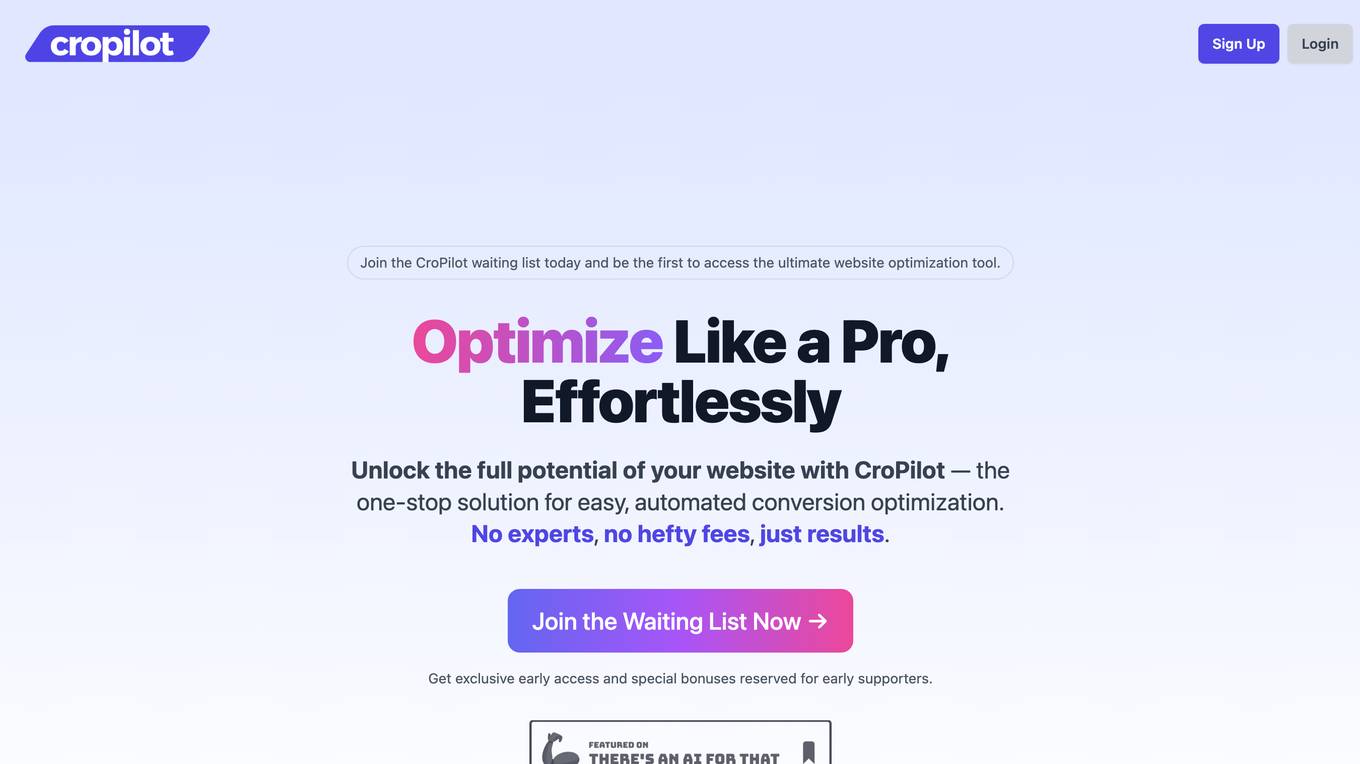
CroPilot
CroPilot is an AI-powered website optimization tool that helps businesses increase conversions and improve user experience. It offers a range of features including audience targeting, goal-oriented optimization, AI-driven insights, heatmap analysis, automated analytics reporting, and A/B testing. CroPilot is easy to use and integrates seamlessly with popular platforms like WordPress, WooCommerce, and Shopify. It is suitable for businesses of all sizes and can complement existing optimization tools.
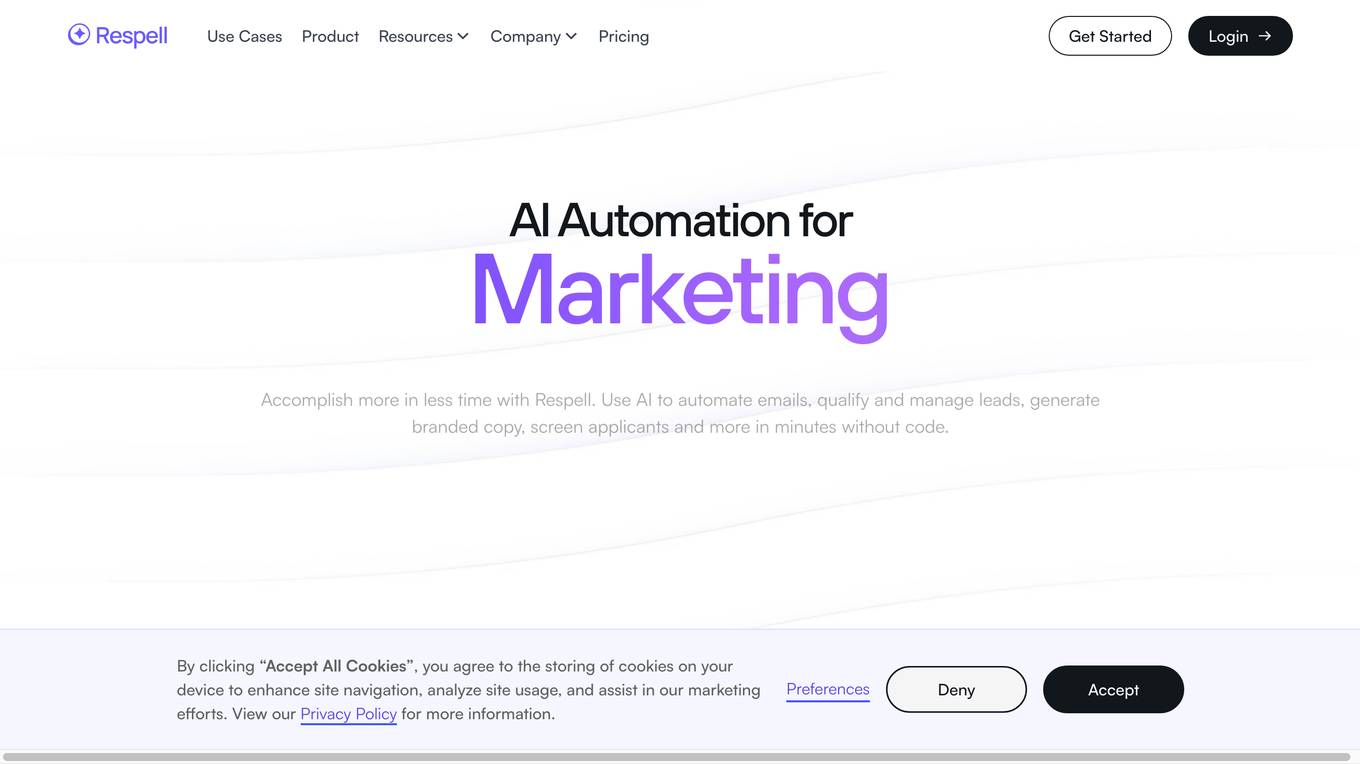
Respell
Respell is an AI-powered platform that enables businesses to run their operations with agentic AI workflows. It offers advanced AI automation capabilities for various tasks such as lead generation, email marketing, user research, project management, customer support, and data management. Respell leverages cutting-edge AI models from OpenAI, Anthropic, Cohere, and other open-source providers to provide prompt assistance and custom-built agents for research, phone calls, integrations, and more. The platform ensures enterprise security with SOC II compliance, compliant models, and advanced PII & Prompt Injection Prevention. Users can create custom spells, automate workflows, integrate with popular platforms, and leverage AI to analyze and act on data for smarter decision-making.
1 - Open Source AI Tools
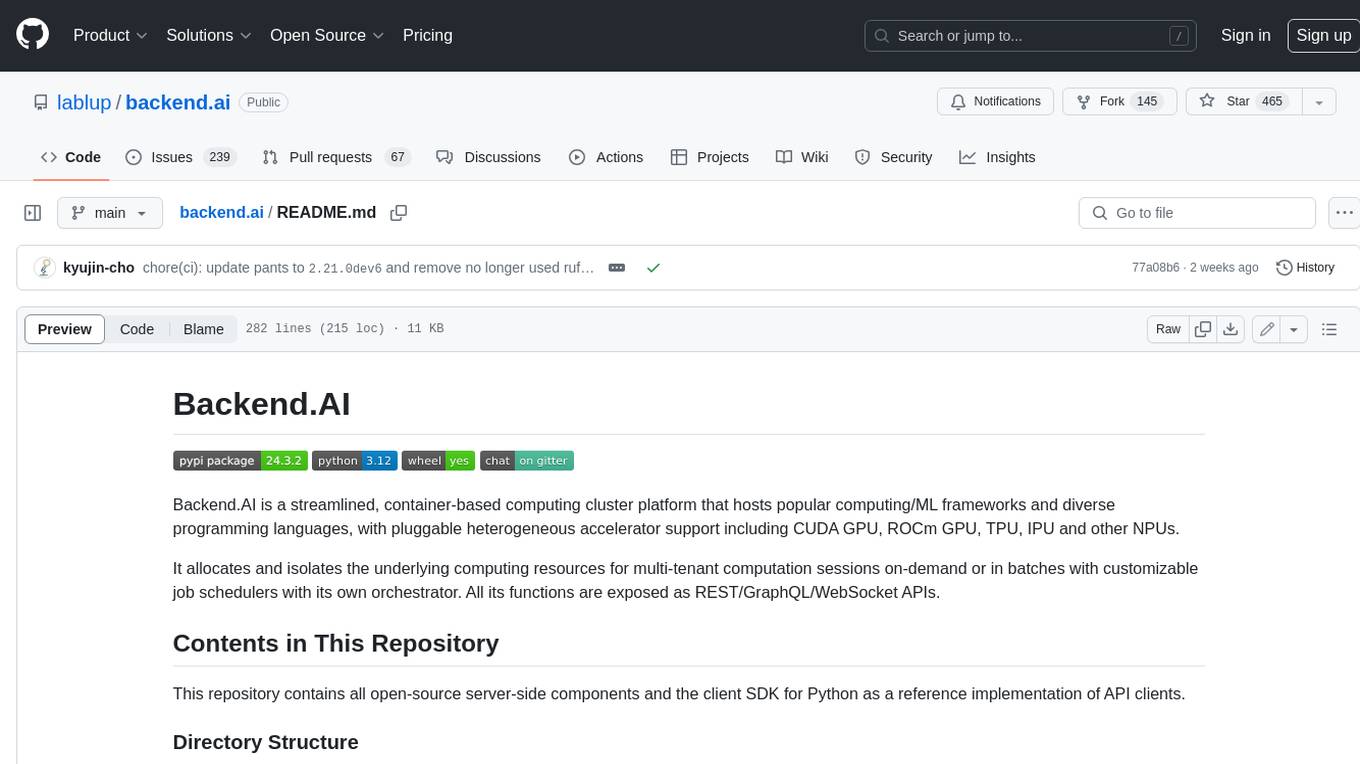
backend.ai
Backend.AI is a streamlined, container-based computing cluster platform that hosts popular computing/ML frameworks and diverse programming languages, with pluggable heterogeneous accelerator support including CUDA GPU, ROCm GPU, TPU, IPU and other NPUs. It allocates and isolates the underlying computing resources for multi-tenant computation sessions on-demand or in batches with customizable job schedulers with its own orchestrator. All its functions are exposed as REST/GraphQL/WebSocket APIs.
20 - OpenAI Gpts

Database Builder
Hosts a real SQLite database and helps you create tables, make schema changes, and run SQL queries, ideal for all levels of database administration.

Pace Assistant
Provides running splits for Strava Routes, accounting for distance and elevation changes
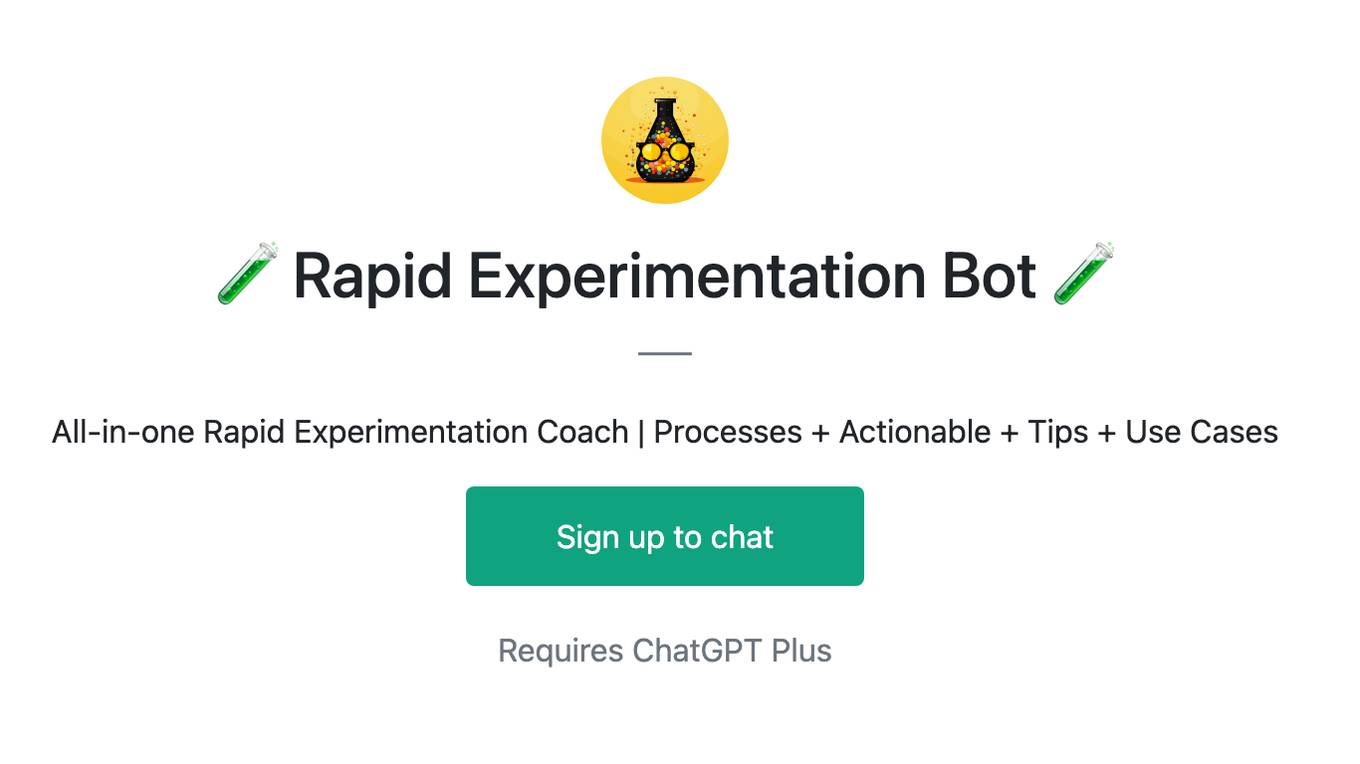
🧪 Rapid Experimentation Bot 🧪
All-in-one Rapid Experimentation Coach | Processes + Actionable + Tips + Use Cases
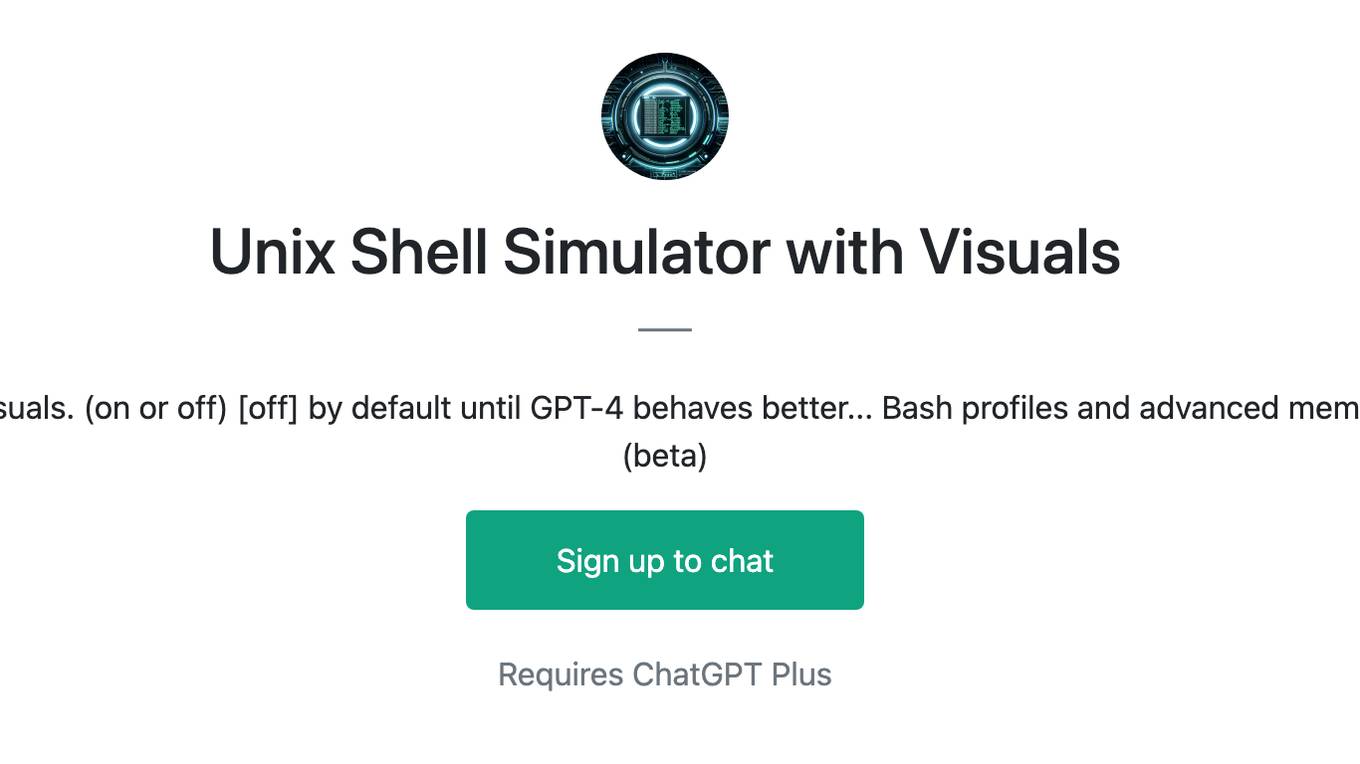
Unix Shell Simulator with Visuals
UNIX terminal responses with OS process visuals. (on or off) [off] by default until GPT-4 behaves better... Bash profiles and advanced memory system for realistic bash simulation. V1 (beta)
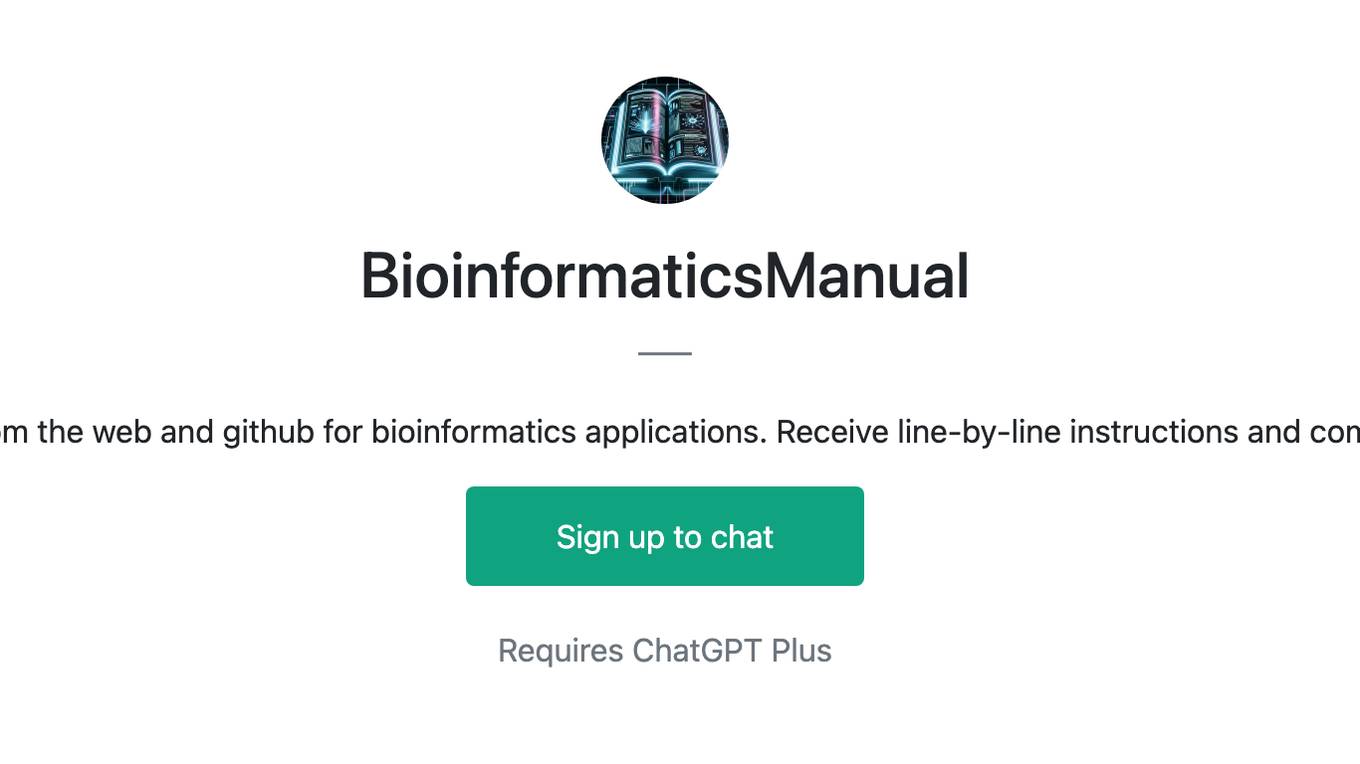
BioinformaticsManual
Compile instructions from the web and github for bioinformatics applications. Receive line-by-line instructions and commands to get started


